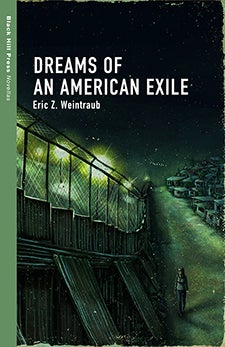
Beyond the lecture hall: How a general ed course inspired me to write my first book
Sitting in USC’s Taper Hall in 2010, I would listen to Jody Agius Vallejo, associate professor of sociology, talk about the mass deportation of long-settled undocumented families, and how people from south of the border made deadly illegal crossings into the U.S. through the Sonoran Desert. I wanted to do something about this problem; however, I wasn’t an activist or a politician, and I knew no one from the undocumented community.
Over the next two years, news about the immigration debate continued to surface, and in 2012, I realized how I could get involved. I was a narrative studies student, in a major that allowed me to focus on creative writing, film and English. I’d do what USC was training me to do — I’d tell a story.
The beginning of a deeper narrative
While enrolled in a creative writing class taught by Dana Johnson, associate professor of English, I wrote a short story about an undocumented immigrant. The story ended with the main character being detained by U.S. Immigration and Customs Enforcement (ICE). The students in my workshop reacted positively towards it and asked me, “What happens to the main character next?”

Eric Weintraub. Courtesy of Eric Weintraub.
“She gets deported,” I said, but even as the words left my mouth, I realized I didn’t have the slightest clue what that means. What happens to someone once they’re deported? A deportee’s story doesn’t end once they’re removed from the U.S. I wanted to dig deeper into this topic. I needed personal, firsthand experience. Fortunately, USC Dornsife offers grants to undergraduates who want to conduct independent research.
I approached Professor Vallejo about the idea of investigating real people caught up in the immigration debate in order to turn their experiences into a series of short stories. She said she loved the idea and signed on to be my advisor for a project funded SURF (Student Undergraduate Research Fund) grant.
The SURF award allowed me to conduct research and interviews with dozens of people from both sides of the immigration debate. I spoke with undocumented immigrants in Los Angeles, Tijuana and Nogales, Mexico, and the Arizona cities of Phoenix and Tucson. I walked the migrant trails of the Sonoran Desert with the guidance of a humanitarian worker and witnessed Operation Streamline, where up to an astonishing 70 deportation trials occur in one courtroom over the course of an hour. My experience gave me an understanding of the stakes undocumented immigrants face every day that I never could have learned from a textbook.
Though I continue my research to this day, writing short stories about undocumented immigrants became my primary focus. In addition to Professor Vallejo’s continued support, Professor Johnson and Susan Segal, associate professor (teaching) of English, provided feedback on the writing and helped me find ways to turn the stories I’d heard during my research into compelling narratives. Having the opportunity to work with multiple professors across disciplines was a great opportunity afforded to me at USC Dornsife.

Dreams of an American Exile is Eric Weintraub’s debut novella.
Bringing back a lesson learned
I graduated in 2013, having received first prize in creative work at USC’s Undergraduate Writer’s Conference for a short story I wrote on this same subject. I expanded one of the short stories into a novella, Dreams of an American Exile (1888 Center, 2015). This past spring, Professor Vallejo invited me back to her class as a guest lecturer.
Standing in front of her students, I opened my presentation with a question: “How many of you are taking this course to fulfill a GE requirement?”
Almost everyone’s hand shot up. I explained how I had taken this class for GE credit, as well. In addition to talking about my own journey, I wanted them to understand that even if a class you’re taking doesn’t seem like it relates to your area of study, you should keep an open-mind. The most unlikely class may have the biggest impact on your life and career.
Eric Weintraub currently is working on a series of short stories centered on undocumented immigrant issues. He lives in Los Angeles, Calif.